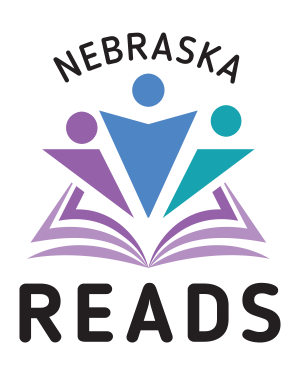Professional Learning Resources
Understanding Structured Literacy
Structured literacy is an effective approach for students who experience reading difficulties or have reading disabilities including dyslexia. Research has indicated that students learn to read better with structured literacy teaching components and methods.
Science of Reading: Phonological Awareness & Phonics
Phonemic awareness has a direct and significant effect on learning to read and spell; it can and should be taught explicitly and systematically. Phonics instruction teaches students the predictable relationships between sounds and the spellings that represent those sounds in written language.
Science of Reading: Knowledge & Vocabulary
Instruction, using complex texts, provides students’ the knowledge and vocabulary they need to become successful readers.
Science of Reading: Comprehension & Fluency
Research points to some effective instructional supports and scaffolds to help struggling readers access complex text without compromising rigor or content. Fluency instruction and practice supports students to make the transition from basic decoding skills to reading that sounds like speech, freeing up mental energy to focus on meaning.
Science of Reading: Analyzing & Responding to Data in Foundational Literacy
Use data to determine where you will need to take corrective action for individual students, and where you will need to target your formative assessments during whole group instruction.
SchoolKit’s Foundation Skills Tutoring Course – This free Canvas course is designed for caregivers and tutors who are supporting students to develop their foundational reading skills. The course helps to build caregivers and tutors’ knowledge and skills of evidence-based reading instruction and provides resources that tutors can use for planning and instruction. This course includes 8 training modules and takes 6-10 total hours to complete.
Early Literacy: Print Awareness, Phonological Awareness, and Alphabet Knowledge – During this online self-pace course, teachers will learn about the importance of print awareness, phonological awareness, and alphabet knowledge. Along with oral language, these form four of the essential elements of early literacy. Learners will understand how a child’s spoken language, including phonological awareness, must be combined with alphabet knowledge and print awareness to build a solid foundation for learning to read. Teachers will not only observe actual classroom instruction, they will also practice some of the skills themselves along the way. In addition, each person taking the course will gain access to instructional tools to help them teach these essential elements to the children in their classrooms.
Systematic and Explicit Phonics Instruction – During this online self-pace course, teachers will build their knowledge of effective phonics instruction aligned with the science of reading. This course will provide teachers with practical tools and develop their commitment to take action in their classrooms to ensure all students have the support they need to become proficient readers.
Introduction to ELA Shifts (Grades K-12) – Access this 1-2 hour PD module (Student Achievement Partners) that can be adjusted to fit local needs.
Assessing, Preventing, and Overcoming Reading Difficulties is an on-demand eLearning series that was developed by David Kilpatrick, Ph.D. in collaboration with the Colorado Department of Education.
Explore Courses: Self-Paced Learning for PreK-2 Educators and Caregivers – PBS KIDS offers a FREE collection of flexible, self-paced learning to help inspire educators and caregivers. Choose from several learning experiences designed to spark new ideas and expand your skill set.
Podcasts
Amplify: The Science of Reading Podcast
Science of Reading: The Podcast delivers the latest insights from researchers and practitioners in early reading. Each episode takes a conversational approach and explores a timely topic related to the science of reading.
Glean’s Research to Practice Podcast
Glean’s Research to Practice Podcast features education experts talking about their latest research and asking them to translate their findings into classroom practice.
Melissa and Lori Love Literacy
Melissa and Lori have created podcast playlists, including:
- Science of Reading
- From Balanced to Structured Literacy
- Reading Comprehension & Knowledge
- Leadership Retreat
- Understanding Dyslexia
Reading Rockets’ Watch & Learn
Reading Rockets’ Watch & Learn podcast series goes inside the classroom to capture the best research-based techniques for teaching reading. The series features the country’s top reading experts, a look at different reading strategies, practical advice for parents to help support their children’s literacy development, as well as personal stories of children, families, and teachers.
Reading Rockets’ Meet the Experts
Reading Rockets’ Meet the Experts podcast series provides an opportunity to learn about educational topics directly from authorities in the field. Watch exclusive interviews with prominent professionals, like Drs. Maryanne Wolf and Louisa Moats. Topics include how to identify reading difficulties, the importance of developing reading skills early, and the role of phonics in reading instruction.
The Six Shifts, with Jan Burkins and Kari Yates, co-authors of Shifting the Balance addresses some of the misconceptions that have prevented educators from incorporating the science of reading into the balanced literacy classroom.
This flier provides a list of frequently asked questions regarding the Nebraska Reading Improvement Act. The most up to date FAQ list can be found at https://www.education.ne.gov/nebraskareads/frequently-asked-questions/
Social Media Playbook July-Dec
This social media playbook is designed to leverage digital media channels with the focus on providing families with information and resources to extend literacy learning to the home. The toolkit includes social media best practices, month by month posts, and graphics to most effectively engage with families in Nebraska.
Parents likely know that reading is important for all children. The best way to engage parents as trusted partners in their child’s reading is to help them support reading at home. This resource shares some at-home reading tips that teachers can share with parents to ensure their children are successful.
Make reading fun with these downloadable bookmarks! Three designs include reading tips and encourage children to read each day.
Each postcard focuses on a different topic – from general tips and tricks about reading with a child, to information about the NebraskaREADS program, to summer reading.




